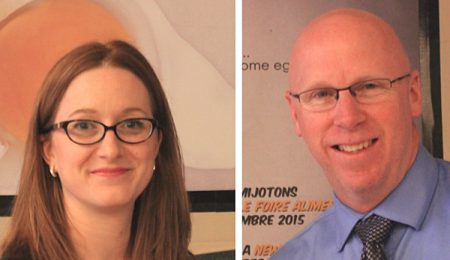What it does: connects aspiring entrepreneurs with experts
Photo by Tina WallaceUniversity of Ottawa student Mohammad Mohsen Badv and a group of eight other students came together to create the new website Croomer, a tool they hope will make the entrepreneurial experience a little bit easier, and a lot more successful.
The group of fourth-year and master’s students, made up of three students from the engineering management program, two from the Telfer School of Management, and four from the computer science department, sat down in December 2013 to discuss how they could make their own individual entrepreneurial projects work. However, they realized they may be much more successful if they instead created a tool that facilitated the development of their ideas.
The group created Croomer, which acts as a networking tool, and allows users to develop an idea and take it to experts, who then guide and advise them on how to get a business off the ground. In addition to experts, users are also able to interact with others who might have similar ideas or experiences worth sharing.
Croomer is organized into two halves. The first half helps users develop their idea, define exactly what it is they want to do, and plan how to do it. Together, these elements create a “pitch card,” and the user takes it to the second half of the site, called the “ecosystem.” Experts then review the idea and provide feedback.
The nine students have worked collaboratively, with each faculty specializing in one element of the project. U of O professors Stephen Daze, Hanan Anis, and Liam Peyton have also mentored the group. The students and professors meet weekly to monitor progress and discuss new ideas.
Concerned with whether there was a market for their website, the group performed a minimum viable product analysis and concluded that while comparable products exist, none provide the complete service that Croomer does. The website distinguishes itself by targeting those who are developing their first entrepreneurial venture.
Badv said the product will be licensed to universities across North America. The website will be available to the general public, but a subscription fee will be charged to those who wish to access the expert advice within the “ecosystem” half of the site.
The website will be used in two separate university courses this summer, one in engineering and one in Telfer, to test the product and work out any possible kinks. The launch date is officially set for September and an app for the website is also in the works.



